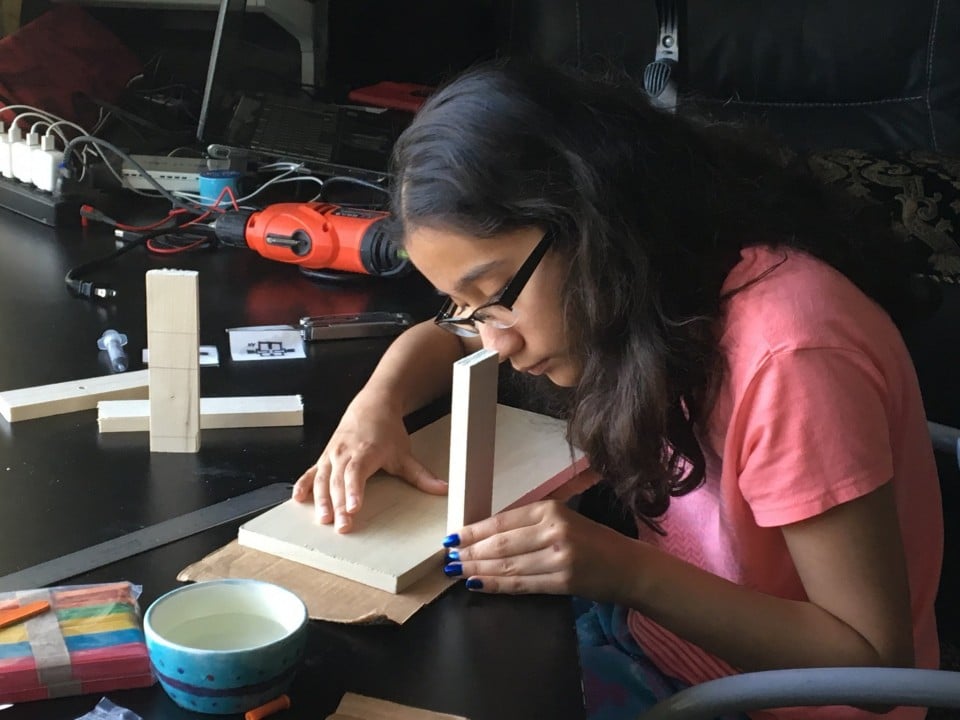A Beaverton seventh-grader invented a bandage that can tell doctors when it needs to be changed, thus speeding healing, and with her invention, finished in the top eight in an international science contest run by Google.
Anushka Naiknaware, 13, won a $15,000 scholarship, a free trip to the Lego world headquarters in Denmark and a year’s worth of entrepreneurship mentoring from a Lego executive.
The Stoller Middle School student brought some serious scientific and mathematical chops to her feel-good science project: designing and testing a bandage that is embedded with teeny tiny monitors to let medical workers “see” whether the dressing has dried out enough that it needs to be changed without having to remove it from the patient.
That’s important because large wounds need to be kept moist to promote healing, but changing bandages too often to check or ensure moisture levels can make wounds worse. She came up with and tested a way to embed nanoparticles of graphene, via ink printed into fractal patterns, in bandages to accurately detect when moisture levels have dropped.
Brilliant, huh? This from a 13-year-old who thanked a mathematical YouTuber for introducing her to “fractals and ultimately the elegance of math.”
Judges loved her work. She was named one of 16 global finalists, all of whom traveled to Google headquarters in Mountain View, California, to present their project to the judges, some of them Nobel laureates, and compete for one of eight awards. Getting to interact, debate and play with 19 other curious and driven teen scientists from places including Zambia, Malaysia and Brazil was one of her favorite life experiences, she said.
Another came long before that: the moment when she built her first prototype of the bandage and graphene-embedded sensor “and saw it work: My idea became a physical, tangible reality.”
Anushka was the youngest person to win one of the coveted global prizes. She scored the Lego Education Builder Award, designed to recognize “a student who uses an innovative, hands-on approach to solve some of the greatest engineering challenges.” With it came the $15,000, the mentorship and the trip to Denmark, where she will receive, among other things, a custom-build Lego brick and a chance to address the company’s board of directors.
Her parents, Ravi and Rahka Naiknaware, both entrepreneurs with engineering and science backgrounds, may both accompany her to Denmark.
She’ll use the Lego mentor’s advice, she said, to figure out how to get U.S. Food and Drug Administration approval for her bandages so a company can produce them at scale and patients can benefit.

